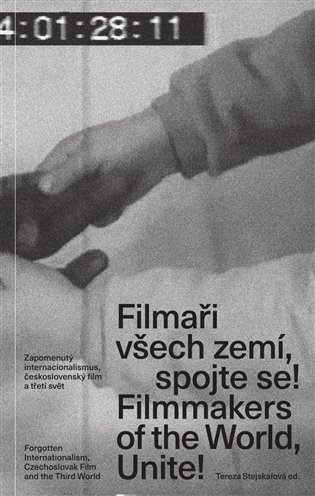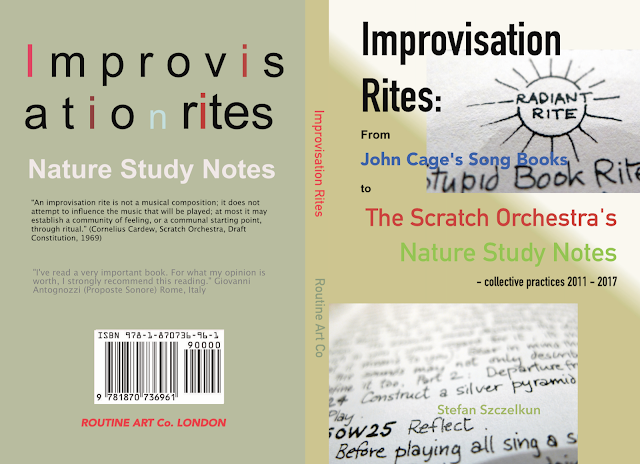Towards an Infrastructure of Humans (2019)
Filed under book | Tags: · art, employment, infrastructure, labour, precarity, work

“Humans can exist without an institution, yet no institution can function without humans. Institutions to a large degree are the people who work in them, but they are also more than just a group of individuals working together. What then does the institutional part of an institution contain? What allows a gathering of people to become more than the sum of all its parts? And in the age of neo-liberal self-exploitation, are institutions still operative in the interests of the individuals involved?”
“The texts and accounts here present the results of the international gathering called Humans of the Institution that took place in November 2017 in Amsterdam. The event aspired to confront the unspoken conditions of cultural employment and activity in a unique manner.”
Edited by Anne Szefer Karlsen with Vivian Ziherl and Steven ten Thije
Foreword by Charles Esche and Steven ten Thije
Publisher Van Abbemuseum, Eindhoven, 2019
Creative Commons BY-NC-SA License
ISBN 9789082902921
159 pages
Tereza Stejskalová (ed.): Filmmakers of the World, Unite! Forgotten Internationalism, Czechoslovak Film and the Third World (2017) [Czech/English]
Filed under book | Tags: · cinema, cold war, czechoslovakia, film, film history, internationalism, postcolonialism

“The Algerian director Mohammed Lakhdar-Hamina (1934) and the recently deceased Syrian director Nabil Maleh (1936–2016) are considered founding fathers of their national cinematography and key figures in Arab cinematography. Due to their politically engaged and aesthetically unique work, they are also read and recognised on an international level. However, there is little acknowledgement of the fact that in the 1960s both studied at FAMU in Prague, a fact that definitely influenced their work. Other distinguished Asian and African directors who studied at FAMU include the Sri Lankan director Piyasiri Gunaratna (1939) and the Tunisian documentarist Hafed Bouassida (1947), as well as dozens of other directors, cameramen and scriptwriters from various countries in Asia, Africa and Latin America.
The bilingual publication includes interviews with some of the directors (Hafed Bouassida, Pyasiri Gunaratna) as well as studies on the work of Mohammed Lakhdar-Hamina (by Olivier Hadouchi) and Nabil Maleh (by Kay Dickinson). A more general cultural context is provided via an essay by the Czech researcher Daniela Hannová on Arab students in Czechoslovakia. Included is also a text by Alice Lovejoy mapping the trip of the Czech New Wave director František Vláčil to China.”
Publisher tranzit.cz, Prague, 2017
ISBN 9788087259412, 8087259416
237 pages
via editor
Review: Miroslav Libicher (25fps, 2018, CZ).
Interview with editor (audio, 10 min, Czech)
Book launch discussion (video, 84 min, English)
PDF (6 MB)
Comment (0)Stefan Szczelkun: Improvisation Rites: from John Cage’s Song Books to The Scratch Orchestra’s Nature Study Notes (2018)
Filed under book | Tags: · composition, graphic score, improvisation, music

“Documentation of an inter-generational exploration of two seminal improvisation scores of the mid-20th century leading to four large ensemble performances.”
Includes photo and/or text contributions (not including quoted ‘rites’ or ‘songs’) from Ali Warner, Portia Winters, John Tilbury, Jane Alden, Ben Harper, Carolyn, Phil England, Michael Parsons, Bron Jones, Hugh Shrapnel, George Chambers, Penny Homer, Geraldine McEwan, Emmanuelle Waeckerle, Matt Scott, Robert Barry, Carol Finer, Martin Dixon, Deirdre McGale, Stathis Mamalakis, John Hails, Charles Hutchins, Petri Hurinainen, Richard Duckworth, Robbie Lockwood, Howard Slater, Alexandra Dami, and Achilleas Karagiannidis.
Publisher Routine Art Co, London, 2018
ISBN 9781870736961, 1870736966
167 pages
Reviews: Julian Cowley (The Wire, 2018), Michael Kemp (2018).
PDF (9 MB)
Internet Archive

